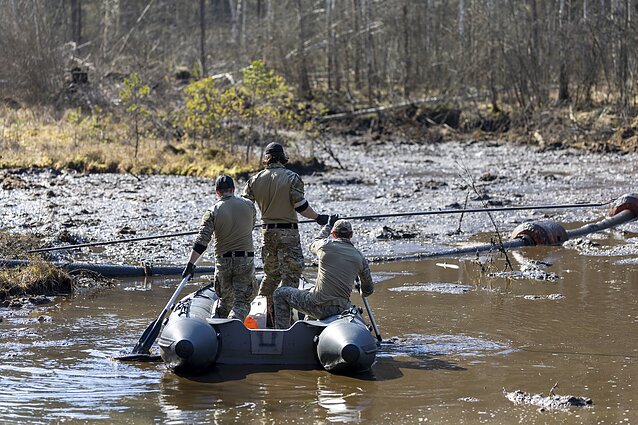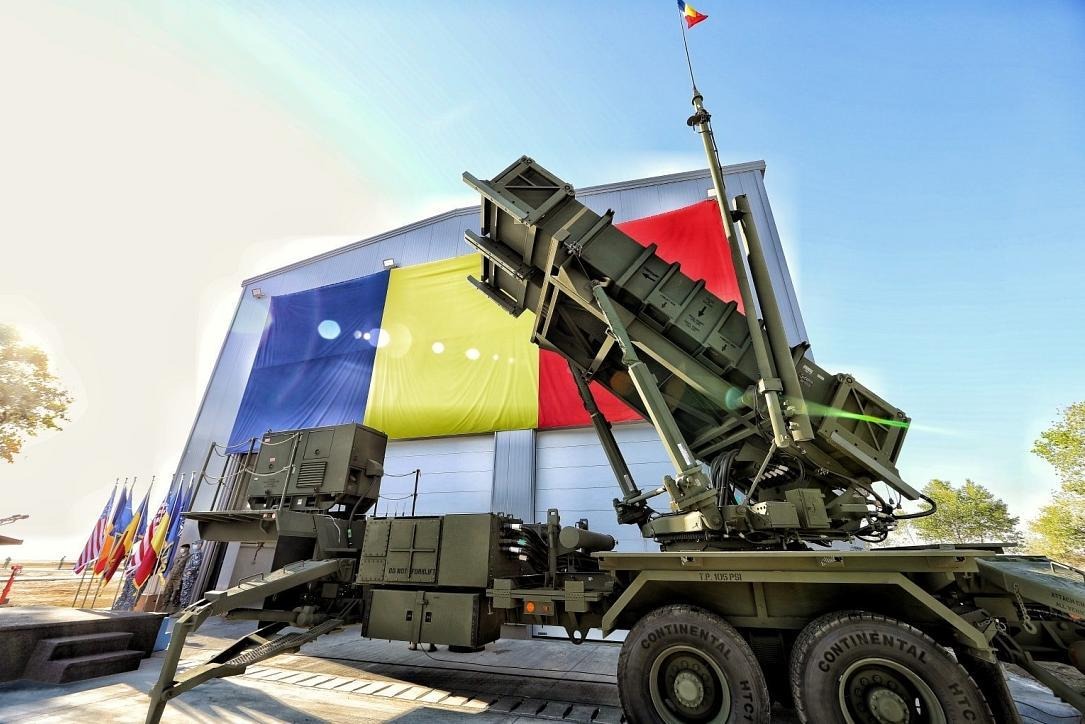
Tragic Fate of U.S. Soldiers in Lithuania Highlights Growing European Security Concerns
Tragic Fate of U.S. Soldiers in Lithuania Highlights Growing European Security Concerns
Executive Summary:
- Four U.S. soldiers, members of the 1st Brigade, 3rd Infantry Division, went missing on March 25 during training near Lithuania’s border with Belarus. The U.S. Army has confirmed that three were found dead after their armored vehicle was recovered from a deep swamp.
- Lithuania’s armed forces led extensive rescue efforts alongside U.S. and Polish personnel, with Lithuania’s Defense Minister Dovilė Šakalienė emphasizing that “Lithuania, like the United States, does not leave its own behind. U.S. soldiers are our soldiers.”
- The incident occurred amid growing European security concerns and renewed defense investments, underscoring the stakes of military readiness, especially along the North Atlantic Treaty Organization’s eastern flank near Russia and Belarus.
After six days of exhaustive search-and-rescue operations, the U.S. Army confirmed the recovery of three bodies from an armored vehicle lifted from a deep swamp at the General Silvestras Žukauskas training area in Pabradė, near Lithuania’s eastern border with Belarus (U.S. Army Europe and Africa; LRT, March 31). The search for the fourth soldier continues. Commentators have placed the odds of survival at near zero (LRT, March 26 [1], [2]).
The four U.S. soldiers were first announced missing on Tuesday, March 25, following a routine tactical exercise (LRT, March 28). The incident triggered an immediate high-level alert and mobilized multiple Lithuanian agencies and emergency responders. Speaking from Pabradė, Lithuanian Defense Minister Dovilė Šakalienė emphasized the country’s all-in commitment, stating, “Lithuania, like the United States, does not leave its own behind. U.S. soldiers are our soldiers.” (LRT, March 27).
Lithuanian authorities believe the soldiers, part of the 1st Brigade, 3rd Infantry Division, were operating an M88, a 70-ton armored recovery vehicle, when it veered off-road into swampy terrain, quickly sinking and trapping the crew inside (LRT, March 28; BAE Systems, accessed March 28). Lithuania’s armed forces have led extensive six-day rescue efforts, aided by helicopters from the Air Force and State Border Guard Service, after locating the vehicle submerged at a depth of 16 feet (5 meters) in thick mud (LRT, March 28). The swampy terrain posed an incredibly complex engineering challenge to extract the vehicle (LRT, March 27).
Observers have noted that the accident occurred amid European unease about the potential withdrawals of U.S. troops from the continent (LRT, March 28). While speculation circulates on how the accident could influence relations between the United States and Europe, official comments from both sides remain supportive of Lithuania and the United States’s cooperation.
U.S. Ambassador to Lithuania Kara C. McDonald visited the site, thanking Lithuanian officials for their substantial efforts and describing Lithuania as a “model ally” (LRT, March 27). Similarly, the U.S. European Command publicly expressed gratitude, stating that the U.S. “could not ask for greater friends” (X/@USArmyEURAF, March 27). The extensive rescue effort itself, with the #WeWillNotRest hashtag trending on X, has become emblematic of Lithuania’s deep appreciation for the U.S. military presence (X/#WeWillNotRest, accessed March 28).
Poland also expressed support by sending a group of soldiers and engineering equipment to Lithuania to assist in the rescue efforts (Lithuanian Ministry of National Defense, March 27). Somewhat uncharacteristically, Russian media outlets have also covered the Pabradė incident neutrally, refraining from any disinformation narratives—presumably to avoid escalating tensions with the United States amid negotiations over Ukraine (LRT, March 27).
The U.S. military has maintained a significant presence in the Baltic region since Operation Atlantic Resolve, a response to Russia’s annexation of Crimea in 2014. A U.S. heavy battalion has been stationed on a rotational basis in Pabrade since 2019. In August 2021, the United States opened Camp Herkus, a facility accommodating rotational deployments of up to 1,000 personnel (Lithuanian Ministry of National Defense, August 29, 2021).
Lithuania, a staunch U.S. ally in the North Atlantic Treaty Organization (NATO), values the presence of U.S. troops on its soil, especially since the small country is situated in one of Europe’s most precarious regions, sandwiched between Belarus and the heavily militarized Russian exclave of Kaliningrad.
The presence of U.S. troops and NATO’s Enhanced Forward Presence is frequently cited as the most effective deterrence against Russia (Lithuanian Ministry of National Defence, August 29, 2021). In addition to the military destruction of Ukraine, Moscow continues to engage in provocations, routine violations of Lithuania’s airspace, and has recently been linked to the sabotage of submarine telecommunication cables in the Baltic Sea (BNS, June 16, 2021; EDM, February 5; The Moscow Times, February 21).
Perhaps unsurprisingly, a 2024 national survey found that 89 percent of Lithuanians view NATO membership favorably—a level of support that has held steady for at least three consecutive years. Meanwhile, 91 percent back the presence of allied forces on Lithuanian soil, and 79 percent believe NATO membership helps deter Russian military aggression (LRT, March 2, 2024).
Responding to persistent criticism that NATO countries underspend on defense, Lithuania allocated 2.5 billion euros ($2.7 billion) to defense this year, exceeding 3 percent of its gross domestic product (GDP) (Lithuanian Ministry of Finance, December 19, 2024). That number is sure to rise even further, as Lithuania’s State Defense Council has agreed to dedicate 5.5 percent of the country’s GDP to military spending over the next five years (LRT, January 17).
As Lithuania and other NATO members ramp up defense spending, the fate of four U.S. military personnel in Pabradė serves as a reminder that readiness entails more than budgets—it carries a human cost.


